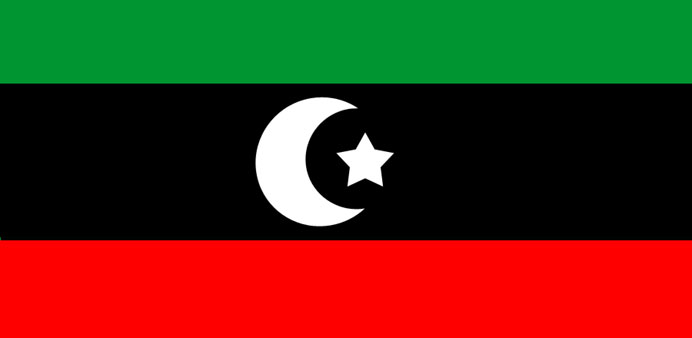AFP/Geneva
Rival Libyan factions yesterday restarted peace talks aimed at creating a unity government, with representatives of the powerful Tripoli parliament joining the negotiations after boycotting them last month.
Libya, which plunged into chaos after the fall of Muammar Gaddafi in 2011, currently has two rival parliaments vying for power as well several militia groups battling for control of the country’s vast resource wealth.
UN special envoy Bernardino Leon, who is brokering the talks in Geneva, is urging the key camps to reach a political deal in the hope that a unity government could enforce a durable ceasefire.
A partial deal was reached last month, but leaders of the Islamist-backed General National Congress parliament that sits in Tripoli boycotted the pact, calling it “unsatisfactory”.
Leon told reporters yesterday that all key actors were represented in the new round in Geneva, “without exception”.
He laid out an ambitious timetable, calling for a comprehensive deal that installs a new unity government to be concluded before the next UN General Assembly meeting in September.
“This could be ideal. But of course, we know that we are in a very complex process,” Leon said. “So at this stage let me leave it as an ideal timetable.”
He added that with divisions widening and violence continuing unchecked, rival camps needed to demonstrate bold “political will”.
“I hope all the Libyan actors will be wise,” he said.
Italy, which has seen tens of thousands of migrants and refugees wash up on its shores this year, most of whom travelled through the chaos in Libya, praised the GNC’s decision to join the talks.
With the GNC involved, “the political process can move forward”, Foreign Minister Paolo Gentiloni said in a statement.
The international community recognises the parliament that sits in the eastern port city of Tobruk, which installed the controversial General Khalifa Haftar as its army chief in March.
The GNC—which took power after an Islamist militia alliance captured the capital last year—will not sign any deal that safeguards a senior military post for Haftar, according to Mohamed Ali Abdallah Addarrat, who sits in the Tripoli parliament and is the head of the National Front party.
“There will not be an agreement if General Haftar is still expected to lead an army in Libya,” Addarrat said.
“Those who were involved in escalating the political and military crisis in Libya cannot be the ones who lead the solution. This is a given.”
The 72-year-old Haftar served as a general under Gaddafi before relocating to the United States, where he worked at times with the CIA, according to reports in US media.
He returned to Libya last year and took charge of the army, vowing to crush the Islamist militias while urging the West to support his forces.
Addarrat said that after four decades of Gaddafi, Libyans had no interest in another military strongman.
“I think Libyans after 42 years of a totalitarian, military dictatorship ... I think we’ve learned our lesson,” he told reporters.

